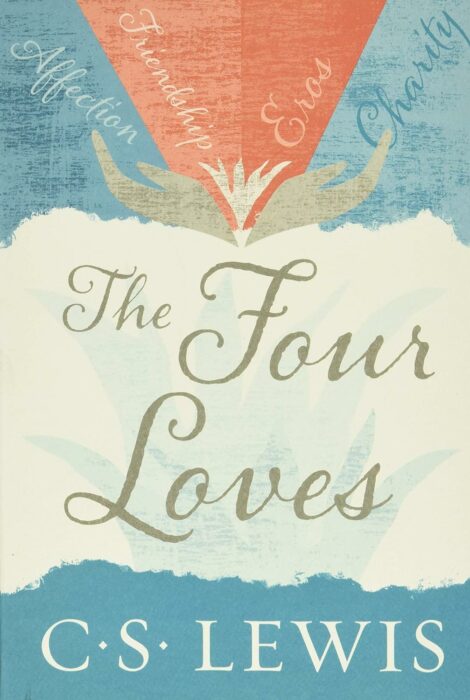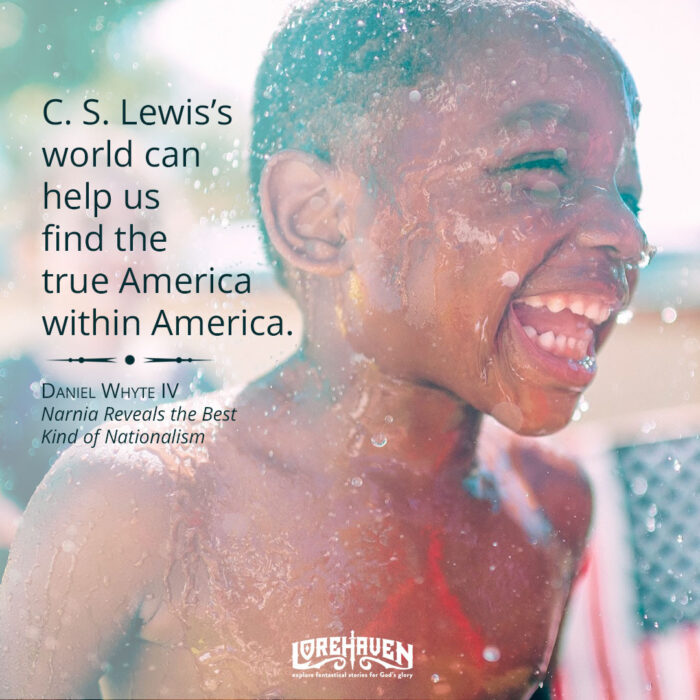Narnia Reveals the Best Kind of Nationalism
As Americans endure another election season, folks are thinking about the kind of country they want to live in for the next four years.
Love of country and national ideals is a tale as old as time. But what does it mean to love one’s country in a world where every social and political debate is heightened to a mini-apocalypse, and the very ideas of nationalism1 and patriotism are often deemed evil?
The work of one Christian fantasy author helps me begin to answer this question.
C.S. Lewis: soldier, scholar, patriot
C. S. Lewis isn’t well-known for his political views, but he held strong feelings about the course of England and about the course of nations in general. He abhorred the idea of a Christian political party and believed natural law was a decent basis for government policy. After fighting in World War I, he volunteered at age forty to reenlist for World War II. His opinions on the education of England’s young people can be discerned in his Ransom Trilogy and the Narnia stories.
Tara Isabella Burton’s new and excellent essay, “on Narnia,” reminded me that Lewis’s fantastic writings did not embrace Englishness because Lewis loved empires, glory, or national policy. Instead, the stories embrace Englishness because Lewis loved “the little people (and animals) who just want to make their way comfortably in the world, and with one another.”
Lewis loved his country and would likely accept the label of patriot and even (in the strictest sense) the now-controversial term nationalist. Still, his love for England pointed beyond nationalist sentiment, and his stories can guide us to a better way of loving our nation.
What stories do patriots consider to be true?
We cannot love our country apart from the bundle of stories that relate its history. More accurately, our interpretation of these stories determines our attitude toward our homeland.
For example, some accept the stories of America as an oppressive force in the world, a hegemonic giant bent on capitalist success even if it must trample third-world, resource-rich nations. Others accept stories portraying America as a salvific benefactor, a liberator, a defender of rightness, and a protector of the weak.
Those who believe only one or the other of these tales both claim to love their nation—but their love, their patriotism, looks very different.
 In The Four Loves, Lewis addresses concepts that shape one’s love of country. One sort of love is quite good (more on this in a moment). But two other kinds of love can guide us down dangerous paths. One path rises from how we see our country’s past, and the other rises from the presumption that our country is better than others:
In The Four Loves, Lewis addresses concepts that shape one’s love of country. One sort of love is quite good (more on this in a moment). But two other kinds of love can guide us down dangerous paths. One path rises from how we see our country’s past, and the other rises from the presumption that our country is better than others:
The actual history of every country is full of shabby and even shameful doings… The heroic stories, if taken to be typical, give a false impression of it and are often themselves open to serious historical criticism… As knowledge [about the past] increases it may snap and be converted into disillusioned cynicism, or may be maintained by a voluntary shutting of the eyes.2
In recent memory, the United States has reckoned with the “glory” of the Confederacy. Recent wars challenge patriotic leanings as we feel tension between a duty to critique flawed policies while not condemning duty-bound soldiers. Reminders of slavery, racism, and oppression have led to “disillusioned cynicism” among campus protesters and “voluntary shutting of the eyes” among conservative commentators.
Lewis agrees that a sense of historic glory—the feeling that one is part of a larger and long-running story—causes people to “behave so much better” than they would otherwise. Imagine if Allied soldiers in World War II hesitated on Europe’s beaches because they felt guilty about America’s slavery-haunted past or England’s old imperialism.
America’s civic biography can provide powerful motivation for healthy nationalism. But history also gives us much cause for misgivings about one’s country. To be proper patriots, we must go further than the stories presented in history books. We must seek the country within the country and a truer narrative than the one served to us by the media. We must go further up and further in.
How C. S. Lewis loved his country
Lewis undoubtedly loved England and his native country of Ireland. He once told his students that “Heaven is Oxford lifted and placed in the middle of [Ireland’s] County Down.” 3 However, his patriotism, such as it was, did not extend to a desire to preserve political England for its own sake. In Lewis’s view, political England existed for the sake of something else. He wrote:
The State exists simply to promote and to protect the ordinary happiness of human beings in this life: a husband and wife chatting over a fire, a couple of friends having a game of darts in a pub, a man reading a book in his own room or digging his own garden—that is what the State is there for. And unless they are helping to increase and prolong and protect such moments, all the laws, parliaments, armies, courts, police, economics, etc., are simply a waste of time.4
Lewis loved something about England that was bigger than England itself. His experiences inside England—such as gathering in The Eagle and Child to laugh and tell stories with John, Charles, Owen, and Hugo—are not unique. His memory of communal camaraderie is small and finite while also infinite and ubiquitous.
In his favorite pub, Lewis encountered universal wonders in a particular place.
Often, in our truly patriotic political wranglings, we fight for the particular and betray the universal. We make sacred cows out of laws, precedent, Supreme Court rulings, and political candidates. We defend or condemn the police, the military, and the justice system as though they are ends in themselves. We sacralize social movements and political parties. We forget that all these exist to serve something both more universal and more ordinary than the nation itself.
Finding the true America within today’s America
For all the Englishness that makes us love the Narnia stories, Lewis is not in love with England as an entity as such. He is not enamored with national epic or grand sweeping narrative.
As Tara Burton says: “What is more striking to me, as an adult reader, is how small, how gentle, how, well, cozy, Lewis’s vision of Englishness is.” In Narnia, she continues, war is only necessary to “preserve the parochialism, the smallness, of Narnian life: sweet badgers and sleepy bears sipping tea and cordial and gathering around the hearth to tell stories.”
Such small and mundane elements of Narnia—and England—are preserved beyond the last battle. In Aslan’s Country, the Pevensies find they are “looking at the England within England, the real England… And in that inner England no good thing is destroyed.”5
Perhaps we can be better patriots and better nationalists if we scale back our vision of country as an entity for its own sake and see more deeply the roots from which a good nation is grown. We must look beyond feelings of America as “the greatest nation on God’s green earth.” (After all, doesn’t God oppose the proud, give grace to the humble, and use the small things of the world to destroy the mighty?6) We must look beyond the glory of power and party, the pomp of July 4 parades, displays of military power, and renditions of the National Anthem so beautiful they’re painful. We must look beyond freedom to protest and freedom of the press.
If we strip away all these things, what do we have left?
We have home, family, and close community. We have grocery stores that collect donations for those who can’t afford food. We have schools and homeschools and after-school activities; holy services, calls to prayer, and quiet evenings interrupted only by lawn-mowing and cheering for favorite teams. We have weekend nights in the corner bar, gatherings of friends and strangers, making memories that light our way home.
We must love these things more than politics, party, war, or legislation. Loving these small things means loving our country, not for its own sake, but for the sake of ideals both greater and smaller than our country—and all countries. Loving these things helps us see the America inside America, the real America. And in that inner America, no good thing is ever destroyed.
- When I use the words nationalist or nationalism, I use them in their most banal sense: identifying with and supporting the interest of one’s own nation. ↩
- From chapter one of The Four Loves, by C.S. Lewis. On the question of national love, the entire chapter is worth your time. ↩
- David Bleakley, C. S. Lewis at Home in Ireland: A Centenary Biography (Strandtown Press, 1998). ↩
- C. S. Lewis, Mere Christianity (1952). ↩
- The Last Battle, chapter 16. ↩
- James 4:6, 1 Corinthians 1:28–29. ↩





























Share your fantastical thoughts.